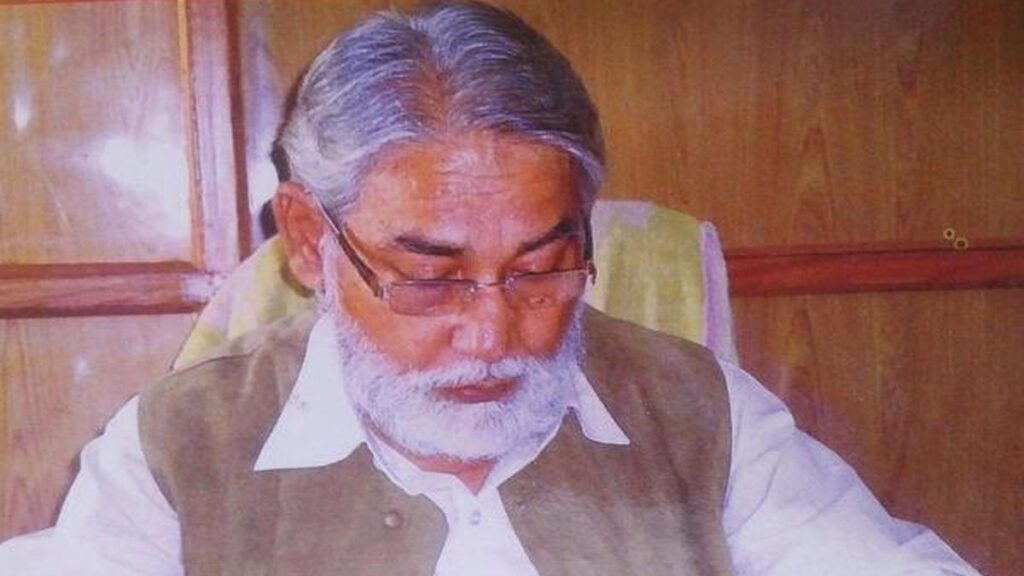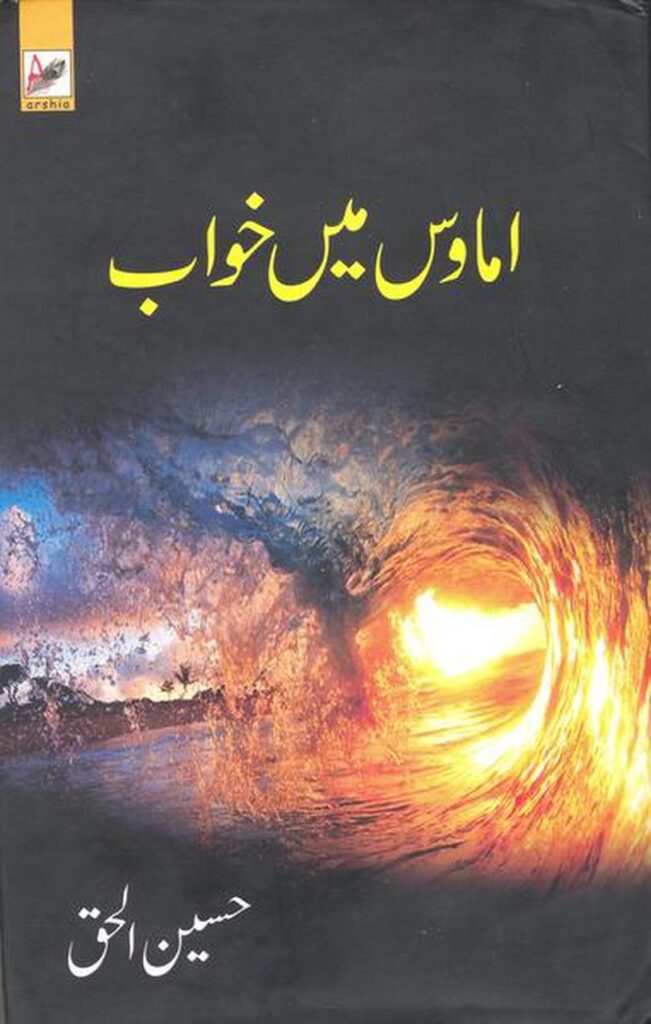Sasaram / Gaya, BIHAR :
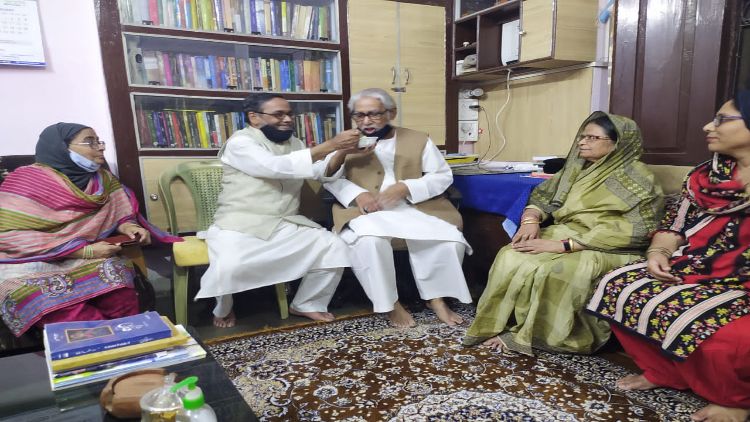
Hussain-ul-Haq with family
Bihar is on top of the list of Sahitya Akademi Awardee for 2020. Three litterateurs including Anamika of Muzaffarpur figure in the coveted national list. She is the first woman in the country to receive the Sahitya Akademi Award in Hindi for her poetry collection.
The 80-year-old Kamalkant Jha, who hails from Jayanagar in Madhubani, would get the award for his story collection ‘Gachh Rusal Achhi’ published in Maithili language.
The most discussed award is that of the famous storyteller Hussain-ul-Haq of Urdu, who lives in New Karimganj. He was awarded the Sahitya Akademi Award for his novel Amavas Mein Khwab. (Dreams in dark night).
Chief Minister Nitish Kumar has congratulated Hussain-ul-Haq for getting Sahitya Academy Award. In a message to all three, the Chief Minister said it was a matter of great pride for Bihar that three of Bihar’s writers were named to receive the Sahitya Akademi Award. The entire Bihar is proud of them,” he said.
Hussain ul Haq has not been keeping good health. He returned home from Delhi where he had gone for treatment. This honour has brought cheers to the family. They shared happiness by distributing sweets.
Haq’s younger brother Dr Ain Tabish is Head of the department of English in Mirza Ghalib College, Gaya. Tabish told Awaz-the Voice, “Bhaiya receiving this honor is a big day for the family. It will inspire young writers and also make people realise that writing on social issues is relevant.”
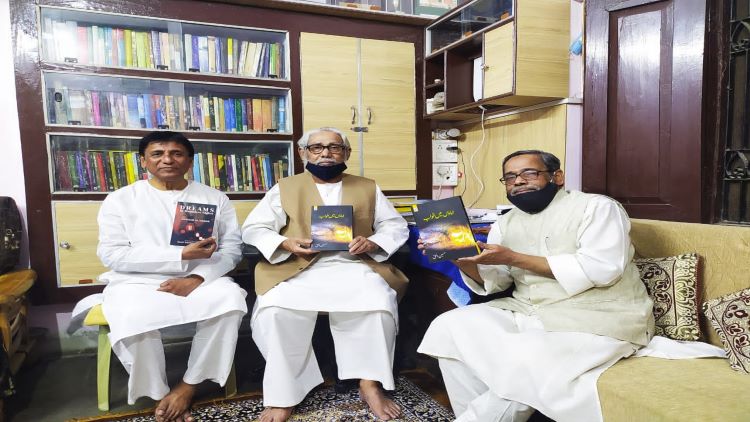
Hussain ul Haq’with family and his books
Born in Sasaram in 1949, Hussain ul Haq’s writings are mostly on human bond and the middle-class society. According to Ahmed Sagir, a young writer who is close to Haq, in 1991, Hussain ul Haq’s first novel ‘Bolo Mat Chup Raho’ (Don’t speak; keep quiet) made waves. His second novel,‘Farat’ published in 1994, got him more limelight and recognition. For some reason, Hussein-ul-Haq didn’t write for a long period. The third novel ‘Amavas Mein Khawab’ hit the stand in 2071 and it sold like hotcakes. It made a great impact in the world of Urdu literature. He has been awarded the Sahitya Akademi Award for this novel. The novel is based on a story about the changing socio-political environment in the time period between 1930 and 1950.
Hussain-ul-Haq has a deep affinity with Sufism. His family is the successor to the legacy of a great Sufi Saint and also the caretaker of his tomb – khanquah. His father, Maulana Anwarul is a well-known personality of Sasaram. Hussain ul Haq says he has imbibed the thinking and the way of understanding things from his father.
Though the family is settled in Gaya, their relationship with Sasaram remained intact. The influence of Khanqahi culture and Sufiism has played role in Haq’s focus on human bonds in his writing.
Hussain ul Haq, who retired as head of the Urdu department and proctor of Magadh University has also published eight story collections, three novels, and half a dozen other books.
After Abdul Samad, Mazhar Imam, Ilyas Ahmed Gaddi, Professor Jabir Hussain he is the fifth Urdu writer from Bihar to receive the Sahitya Akademi Award.
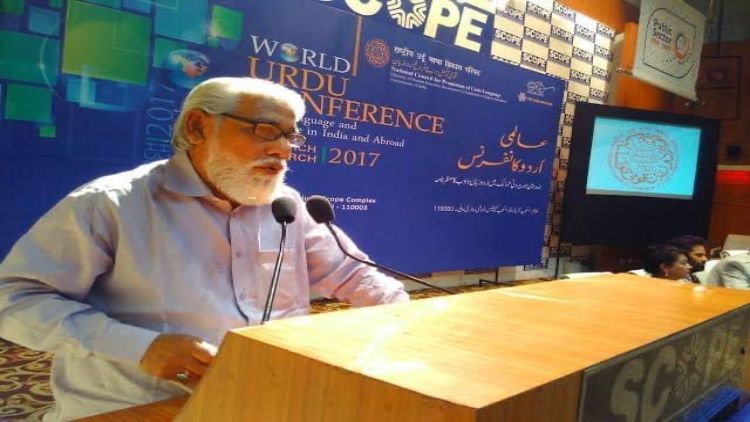
Hussain ul Haq’speaking at a function
Friday brought in a lot of happiness in the Haq family. In the morning, the first news came that Hussain ul Haq has been awarded the Shamim Nikhat Memorial Fiction Award in UP and he will be honored on 13 March at Lucknow. The organisation confers writers with a sum of Rs 50,000 and a memento. Haq will skip the award due to his ill health.
By the evening came the news of the Sahitya Academy Award filling the home with happiness and joy.
Ain Tabish says this award will have a big impact in the Urdu world as the message that writing based on serious issues and principles is still valued today.
Sahitya Akademi Award is the top award for Indian literature and is given away for 20 Indian languages. Among the recipients of this award are senior Congress leader and former Union Minister of Karnataka Veerappa Moily.
source: http://www.awazthevoice.in / Awaz, The Voice / Home>Story / by Seraj Anwar, Patna / March 13th, 2021
